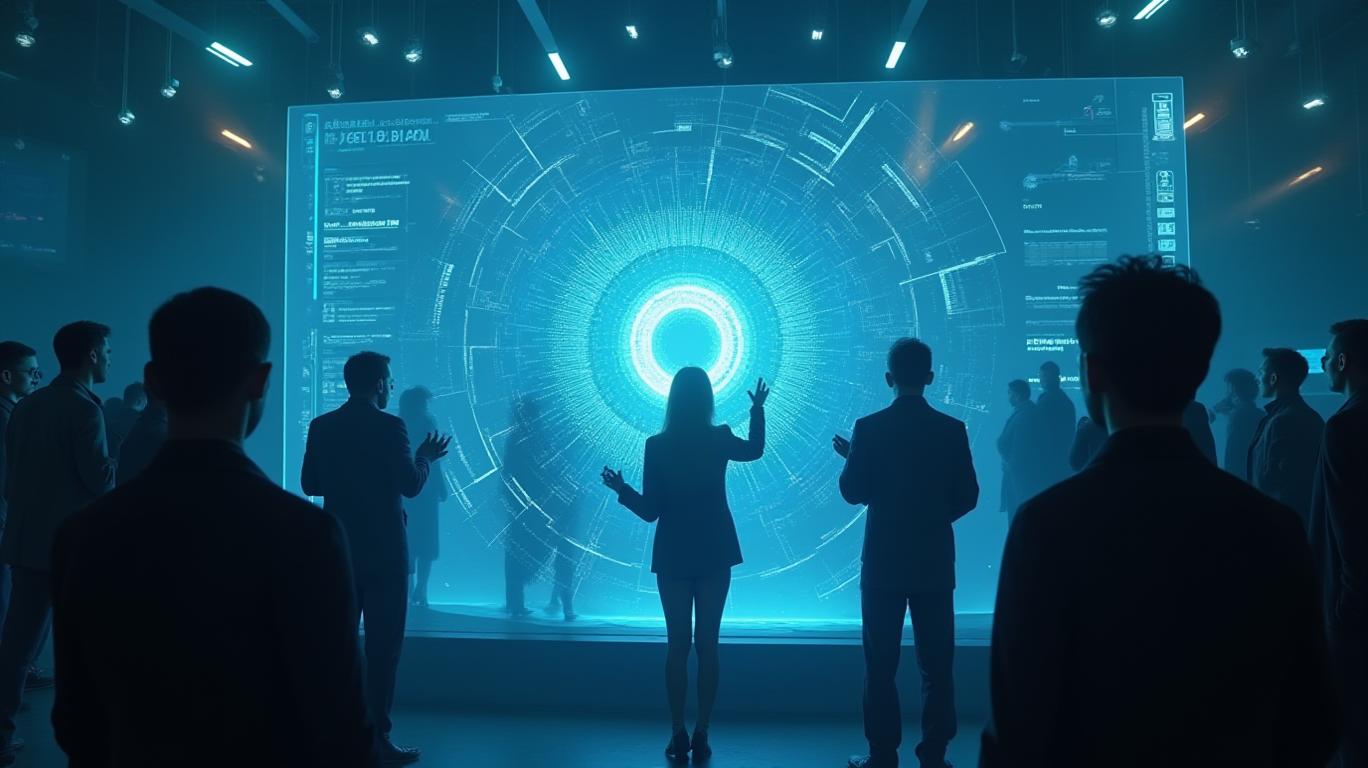Decentralized AI Platforms Offer Transparency, Governance Challenges
The digital assets space is undergoing a significant transformation driven by generative AI (GenAI). The convergence of blockchainGBBK-- and AI technologies is revolutionizing industries and altering how organizations operate. As companies adopt GenAI, they must navigate complex issues such as privacy, security, and intellectual property protection to avoid legal pitfalls while maximizing the transformative potential of AI platforms.
The emergence of decentralized AI (deAI) adds another layer of complexity to AI governance and participation in the rapidly expanding AI ecosystem. Powered by AI crypto tokens, deAIDEA-- platforms introduce new challenges and opportunities, making governance frameworks more critical than ever. DeAI combines the power of AI with blockchain technology, often relying on AI crypto tokens to enable transactions within its ecosystems. These tokens serve multiple roles: granting access to AI-driven services like predictive modeling, incentivizing participation in collaborative networks, and facilitating governance by allowing token holders to engage in decision-making processes.
Depending on the use case, deAI ecosystems can offer significant advantages over centralized GenAI platforms. These advantages include transparency, decentralized control, and inclusivity. Notable deAI projects include SingularityNET, which aims to accelerate the advancement of deAI, and Fetch.ai, which provides a marketplace for autonomous AI agents. As these platforms grow, understanding their benefits and challenges, especially compared to centralized AI, is essential for businesses seeking to leverage AI and blockchain technologies.
Along with its many benefits, deAI introduces unique considerations to AI governance, especially regarding intellectual property (IP) and data ownership. Recent copyright disputes involving centralized AI models highlight the tensions between companies benefiting from vast datasets used to train AI algorithms and the data providers. These disputes have led to precedential lawsuits, with creators alleging that their works were used to train GenAI models in ways that infringe copyright and other laws. DeAI platforms, powered by AI crypto tokens, are showing promise as means of limiting or altogether avoiding these IP and data ownership disputes, through the use of blockchain technologies that prioritize user control and meaningfully compensate data contributors.
DeAI projects promise transparency and the ability to ease legal tensions over data rights throughout the AI lifecycle. By decentralizing control through the use of blockchain technology, proponents argue that deAI will be instrumental in creating more inclusive AI ecosystems, serving to bridge the economic divide between AI "haves" and "have-nots." However, deAI also faces significant governance challenges, particularly in navigating regulatory compliance and addressing the inherent risks of decentralized management. Unlike traditional AI platforms, which operate under centralized control, deAI platforms often fall into regulatory gray zones. Most current laws assume the existence of a centralized entity that can be held responsible for data protection and compliance. Decentralized ecosystems, governed by consensus protocols rather than a single controlling entity, can challenge this framework. Without a clear "controller," decentralized platforms may struggle to align with the relatively mature legal standards that have been designed largely with centralized systems in mind.
Beyond the application of arguably inapt legal and regulatory standards, technical and operational challenges may likewise hinder deAI adoption. Scalability remains a significant hurdle, as the underlying blockchain infrastructure of decentralized platforms often struggles to process large-scale AI applications efficiently. Coupled with the complexities of managing decentralized ecosystems, these limitations could slow the adoption of deAI models compared to their centralized counterparts. The question remains whether deAI can overcome these obstacles to rival the current dominance of centralized GenAI platforms. By addressing these governance and scalability issues, deAI projects have the potential to redefine the AI landscape, but achieving this vision will require innovative solutions and careful navigation of the regulatory environment.
The fusion of GenAI and blockchain technology brings both significant potential and a certain amount of uncharted risk. To successfully leverage the benefits of deAI, organizations must adopt governance frameworks designed specifically to address the legal, ethical, and practical challenges of decentralized AI platforms and technologies. DeAI is reshaping ideas of ownership and collaboration, though its ability to rival centralized platforms remains uncertain. For now, prioritizing transparency, accountability, and proactive planning is essential to navigating this evolving landscape responsibly.

Quickly understand the history and background of various well-known coins
Latest Articles
Stay ahead of the market.
Get curated U.S. market news, insights and key dates delivered to your inbox.



Comments
No comments yet